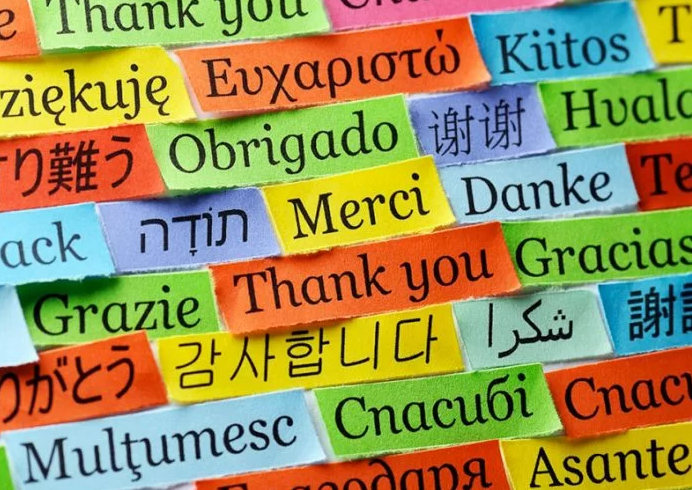What are the words thanks to which you will be understood all over the world without even using the dictionary (or Google Translate)?
The 7 UNIVERSAL WORDS which are EQUAL in EVERY LANGUAGE
Sometimes it happens to be able to translate sentences into languages that are not known thanks to assonances, or words that sound similar to others and for this reason they are translated easily. Although the similarities may be many, the words that do not need translation are very few. Here is the ranking of the 7 words considered “universal” because you understand, even without a dictionary (or Google Translate), in every part of the globe.
#1 PAJAMAS

The most comfortable noun in the world originates from India, in fact in Hindi the word “pajama” meant very wide trousers tied around the waist. After the colonization, the British imported the garment and consequently also the term that designated it. Today the English version of pajamas is the best known, but in almost all the languages of the world the nocturnal leaders have similar names: from the Arabic bijama to the Hungarian pizsama, also passing through languages such as Basque and Irish in which pajama is used.
#2 COFFEE

“Excuse me, could I have some coffee?” it is probably one of the most repeated phrases all over the world and you can rest assured because apparently, you will be understood in many other countries without too much translation effort. Almost all the languages of the world have borrowed the Turkish word kahve and have developed three different but undoubtedly similar sounds: kofi, kahve, kava. After borrowing the term Turkish, no language has strayed too far: the Romance languages have changed the V into F – like our coffee – while others have replaced the A with the O – such as English coffee – but minor changes aside, they are all understandable without the need for a dictionary.
#3 OK

If coffee there is just one of the most widespread words, the term ok – short but effective – stands out on the podium. In fact, it was born around 1830 as an American abbreviation and although its exact origin is not known, it has found enormous success. Used to say that “everything is fine” in almost all countries of the world, behind its successful diffusion there are several theories, for example it is said that the reason for this success is its simplicity: the sounds “oh”, ” k ”and“ ay ”exist in most languages, which would make it easily reproducible.
#4 MOM

The formation of the word “mom” would seem to follow the same pattern in many countries. When children stutter, experimenting with language, they easily come to the sounds mmm and ah. By combining these two simple sounds, children refer to the person who takes care of them, forming very similar words: mamma, mami, eomma.
#5 HUH? or EH?

These two variants seem to be the universal sound with which misunderstanding and doubt are indicated. When we don’t understand what someone just said we simply say, “huh?”. An interlingual study conducted by researchers Mark Dingemanse, Francisco Torreira and Nick Enfield, of the Max Planck Institute for Psycholinguistics in Nijmegen (Netherlands) has shown that the reason for this universality is given by the function of sound in conversations: it must be easily inserted into a conversation without interrupting the speaker too much, and it seems that these are the sounds that best suit this function.
#6 GUITAR

It seems absurd and yet it is so: the word guitar finds many recurrences in different languages. Yet these terms have rather geographically dispersed origins. In fact, the modern instrument derives from the Latin chitarra, of medieval origin, while for example the Spanish guitarra would have Arab (gitara) and Greek (kithara) origins. Finally the sound tar, which unites the ending of these terms, would seem to appear for the first time in Persian and Sanskrit, indicating various instruments such as the sitar. The word then spread around the world and evolved in different ways, but keeping quite similar results.
#7 HAHA

“What is the noise of happiness”; the answer apparently is only one in the world: haha. Although the sound is graphically represented in different ways, its meaning is understandable in every continent and country, for example in Spanish the H is replaced by the J to form jaja. In Thailand the number 5 is pronounced “ha” and for this reason, to transcribe laughter with the keyboard, they use to type “55555!”.
If you are a coffee lover, you love being in your pajamas and often communicate with your laughter, then you can officially declare yourself “citizens of the world” since in every part of the globe you decide to go you will certainly have no problems in making yourself understood.
ROSITA GIULIANO











